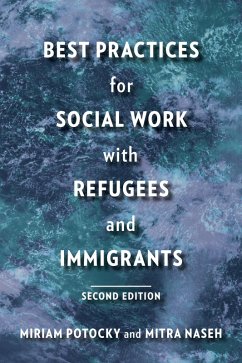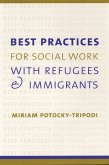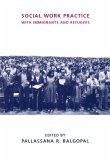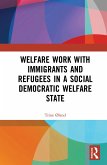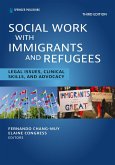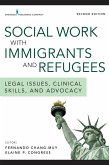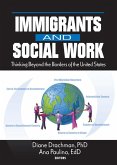Social work practice with refugees and immigrants requires specialized knowledge of these populations and specialized adaptations and applications of mainstream services and interventions. Because they are often confronted with cultural, linguistic, political, and socioeconomic barriers, these groups are especially vulnerable to psychological problems such as anxiety, depression, alienation, grief, and post-traumatic stress disorder, as well as concerns arising from inadequate health care. Institutionalized discrimination and anti-immigrant policies and attitudes only exacerbate these challenges.
The second edition of Best Practices for Social Work with Refugees and Immigrants offers an update to this comprehensive guide to social work with foreign-born clients and an evaluation of various helping strategies and their methodological strengths and weaknesses. Part 1 sets forth the context for evidence-based service approaches for such clients by describing the nature of these populations, relevant policies designed to assist them, service-delivery systems, and culturally competent practice. Part 2 addresses specific problem areas common to refugees and immigrants and evaluates a variety of assessment and intervention techniques in each area. Using a rigorous evidence-based and pancultural approach, Miriam Potocky and Mitra Naseh identify best practices at the macro, meso, and micro levels to meet the pressing needs of uprooted peoples. The new edition incorporates the latest research on contemporary social work practice with refugees and immigrants to provide a practical, up-to-date resource for the multitude of issues and interventions for these populations.
The second edition of Best Practices for Social Work with Refugees and Immigrants offers an update to this comprehensive guide to social work with foreign-born clients and an evaluation of various helping strategies and their methodological strengths and weaknesses. Part 1 sets forth the context for evidence-based service approaches for such clients by describing the nature of these populations, relevant policies designed to assist them, service-delivery systems, and culturally competent practice. Part 2 addresses specific problem areas common to refugees and immigrants and evaluates a variety of assessment and intervention techniques in each area. Using a rigorous evidence-based and pancultural approach, Miriam Potocky and Mitra Naseh identify best practices at the macro, meso, and micro levels to meet the pressing needs of uprooted peoples. The new edition incorporates the latest research on contemporary social work practice with refugees and immigrants to provide a practical, up-to-date resource for the multitude of issues and interventions for these populations.
Dieser Download kann aus rechtlichen Gründen nur mit Rechnungsadresse in A, D ausgeliefert werden.

